
Video Captures A Blanket Octopus Revealing Its 6-Foot-Long Membrane And It Looks Like A Majestic Sea Butterfly
Some of the world’s most stunning creatures might be living right nearby without us noticing them. But when we do spot them, most of us can’t help but share their beauty with the world. That’s exactly how one cephalopod became an instant celebrity on the net.
Staff working at the NAD Lembeh Resort in Indonesia caught on tape a female blanket octopus swimming and showing off its beautiful iridescent membrane. The video went viral with over 76k views and brought attention to these unusual (not to mention mesmerizing) deep-sea creatures.
Dear Pandas, you’re in for a treat because blanket octopi are jaw-droppingly interesting. So scroll down, enjoy, and read on for Bored Panda’s interview with Simon from the NAD Lembeh Resort who took the video.
More info: NAD-Lembeh.com | Facebook | YouTube
Check out this awesome video featuring a blanket octopus
“The world can be rough. Politics, viruses, natural disasters. So here is a female blanket octopus to remind you that this planet is still a pretty amazing place. You’ve got this,” the resort wrote an inspirational description beneath their YouTube video.
Only females have the mesmerizing iridescent membrane
“I was diving just off the beach at NAD Lembeh, searching for plankton one night and was lucky enough to spot this beautiful animal,” Simon told Bored Panda. “I have done thousands of dives around Lembeh Island looking for the best places to find plankton so we can give our guests the best experiences, and at the same time making a book about the planktonic stages of marine life. Sometimes, we travel for 2 hours to get to deep water, and then one day I found the most special sea creature by swimming off our beach! Quite funny, really.”
“Drifting out in the open ocean is definitely a thrill for most divers as you really don’t know what you’re going to see,” Simon told us about the excitement of swimming in the open ocean. “Sometimes, your brain plays tricks on you; and for no good reason you are humming the ‘Jaws’ theme whilst swimming around the inky blackness looking over your shoulder.”
He continued: “Other times you are so busy seeing things you don’t even consider what might be beneath you. Sadly there are so few sharks left that it’s statistically irrelevant that you might see a big shark around Asia in the open ocean.”
Simon said that it’s hard to predict when blanket octopi will show up. “But there is a season when they are more frequent—the key is knowing about these ocean creatures’ natural history as well as having experience in finding them. Luckily, they are often found at the same time as Argonauts so there is always something interesting to see—you don’t get bored looking for this magical sea animal.”
“It’s been a year since we found the first one for us and we have seen 8 big females like in the video and around 60 juvenile females and adult males. The adult females that we have seen are usually around 1 meter long whereas the adult males are around 4 centimeters long. Adult males and juvenile females look very similar, so we just log them together for our records.”
Simon said that the reaction to their video has been “mostly great.” However, he also noted that “as a content producer you always have to worry about your material being stolen and rebranded.” And that poses a lot of challenges.
“I’ve wasted a lot of time asking media outlets to remove unauthorized postings in the last week, so thank you for being the first company to do things right! For the wonderful dive-guides at NAD-Lembeh, it will mean that everyone who visits them will expect to see a blanket octopus, so they will be busy doing their best to find the next rare animal that the ocean has to offer!”
National Geographic explains that these colorful octopi get their name from the “sheets of webbing that stretch between some of their arms.”
“When threatened, they stretch their arms out, creating a blanket-like silhouette meant to frighten would-be attackers away,” National Geographic writes.
It’s only blanket octopus females that look so fabulous: unfortunately, nature didn’t give the males 6-foot-long rainbow-colored membranes. What’s more, some males are less than an inch long: they’re several hundred to several thousand times smaller than females. And the males’ short lives end right after they mate.
A cynical person would complain about inequality and that the Underwater Matriarchy is ‘oppressing’ poor blanket octopus males. However, the fact is, blanket octopus females, die shortly after laying their eggs. An optimist would point out that there are much worse ways to go out than right after love-making or creating a new generation of cephalopods.
Another interesting thing about blanket octopi is that the females’ ‘blankets’ can break off. So divers sometimes spot these ghostly iridescent sheets floating without its owners.
Blanket octopi are also tougher than human beings in some respects. For instance, they’re completely immune to the stinging cells of the Portuguese man o’ war jellyfish whose stings are known to be lethal in some cases. Deep-Sea News writes that female blanket octopi “rip off” the tentacles off these jellyfish and “uses them like little octopus nunchucks. Beautiful and well-versed in underwater ninjutsu. In other words—perfect.
The octopus charmed the internet
Octopi have to be one of the cooler creatures on this beautiful marble we call earth!
I know this is aside the point, but I really enjoyed the correct use of the word octopi in this sentence haha
Load More Replies...Octopi have to be one of the cooler creatures on this beautiful marble we call earth!
I know this is aside the point, but I really enjoyed the correct use of the word octopi in this sentence haha
Load More Replies...
 Dark Mode
Dark Mode 

 No fees, cancel anytime
No fees, cancel anytime 






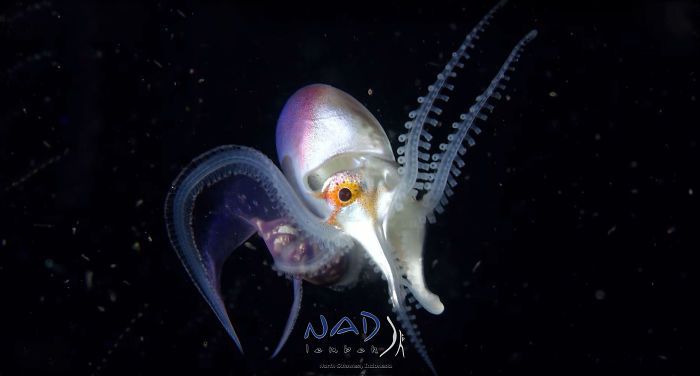
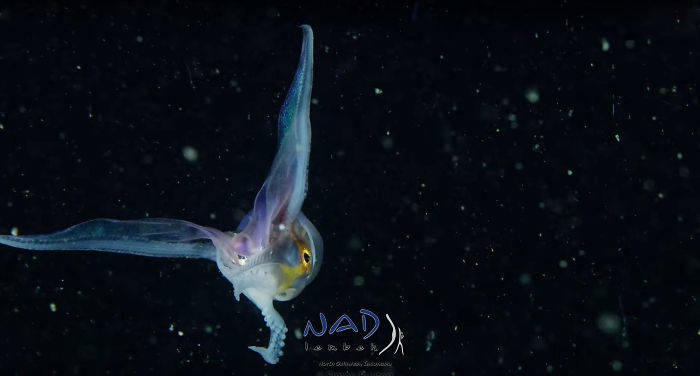
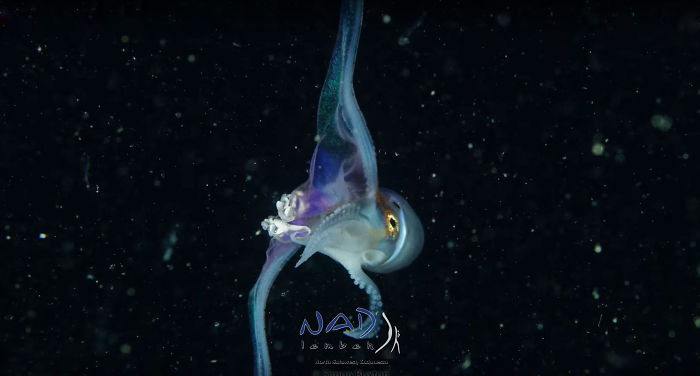
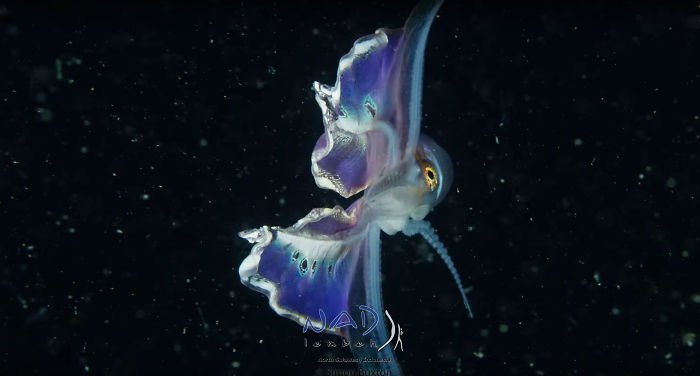
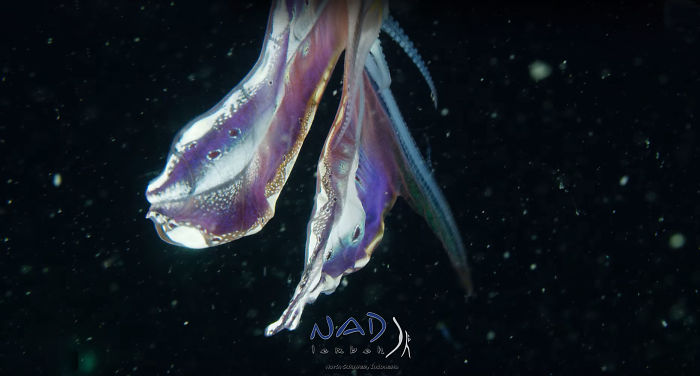
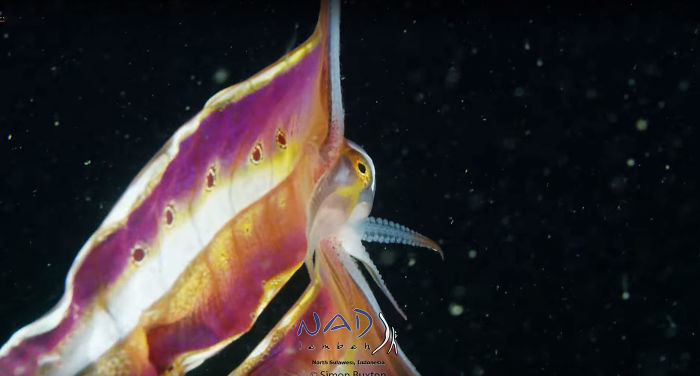
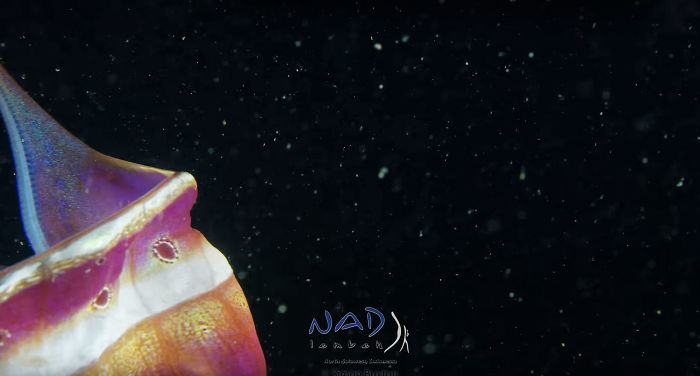























































250
15